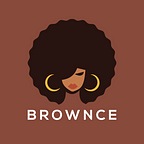It is said that to even have a chance at economic survival, one must have access to education, employment, and homeownership.
In the past, Black women have been excluded from education, employment, and homeownership. However, the consumption and production of beauty products offered to consumers, proved that Black women entrepreneurs can also gain profitable social and economic benefits without those accessibilities.
Photo by Eye for Ebony on Unsplash
The backstory of a Black business beauty industry begins in the late 19th century, where the industrialization of products and treatments to straighten Black women’s hair generated so much money for Black women entrepreneurs.
The companies gave Black women a rare and lucrative opportunity to become very successful in business. Although mainstream media rarely represented Black women as beautiful, the beauty of Black women was valued within their own communities.
By equating straightened hair with nice grooming and appearing respectable, Black women like Madame C.J. Walker and Annie Turnbo Malone made millions in the Black beauty and hair industry.
At the end of the 20th century, a few Black-owned hair care and beauty companies were able to achieve broad markets and substantial profitability. Unfortunately, most beauty companies disappeared as they were faced with an increased competition or risked being purchased by bigger white-owned corporations.
During a time when women faced immense racial, gender, and class opposition, Black beauticians negotiated their identities as Black businesswomen and they expanded on their traditional norms of womanhood.
At the time, being Black in the beauty industry meant that salons were used as spaces for Black women to engage in political activism and Black beauty professionals were able to provide meaningful educational and economic opportunities for other Black women.
Photo by Eye for Ebony on Unsplash
Some other Black entrepreneurs in the beauty industry include:
Anthony Overton — who was born into slavery and became a leading Black entrepreneur in the 20th century with his Overton Hygenic Manufacturing Company. The company sold baking powder, cosmetics, perfumes, hair products, etc.
Lisa Price — the beauty entrepreneur and founder of Carol’s Daughter. This brand is one of the first Black-owned product lines with a flagship store. The Carol’s Daughter line now carries more than 300 aromatic products for your face, hair, body, and home.
Another successful Black entrepreneur was Rose Meta Morgan. Rose opened her first salon called the Rose Meta House of Beauty. Along with hair and skincare, the salon also offered different services catered to Black women.
And lastly, how can we forget about one of the most well-known Black beauty entrepreneurs living in our time, Rihanna — the owner of Fenty Beauty. This Beauty brand is best known for its inclusivity and making sure that its beauty products perform well across all skin types and skin tones.
According to Nielsen, Black people possess about $1.2 trillion in spending power and according to Essence, the Black hair care industry alone generates billions in annual sales.
Now, as the new generation of Black entrepreneurs emerges, the beauty industry will never be the same. Everyone will know about new and innovative beauty brands like The Lip Bar, CurlMix, and Curls that are here to shift the beauty industry in the right direction, increase sales, and raise capital to expand their businesses.
By Josie D.
The Cheetah Buzz
